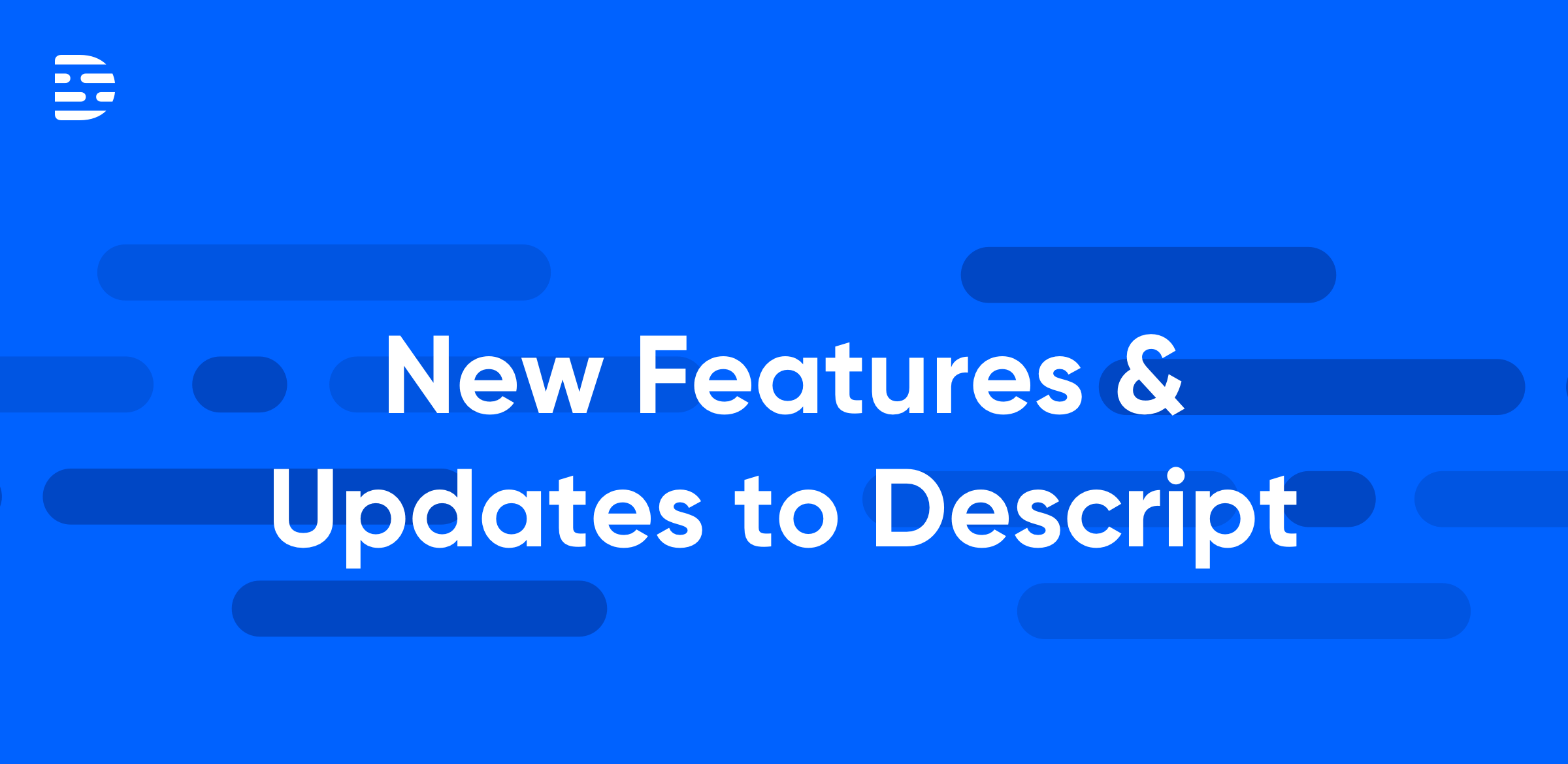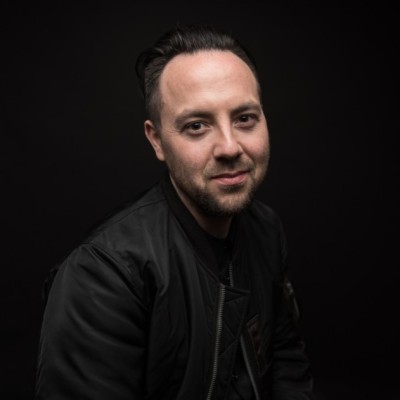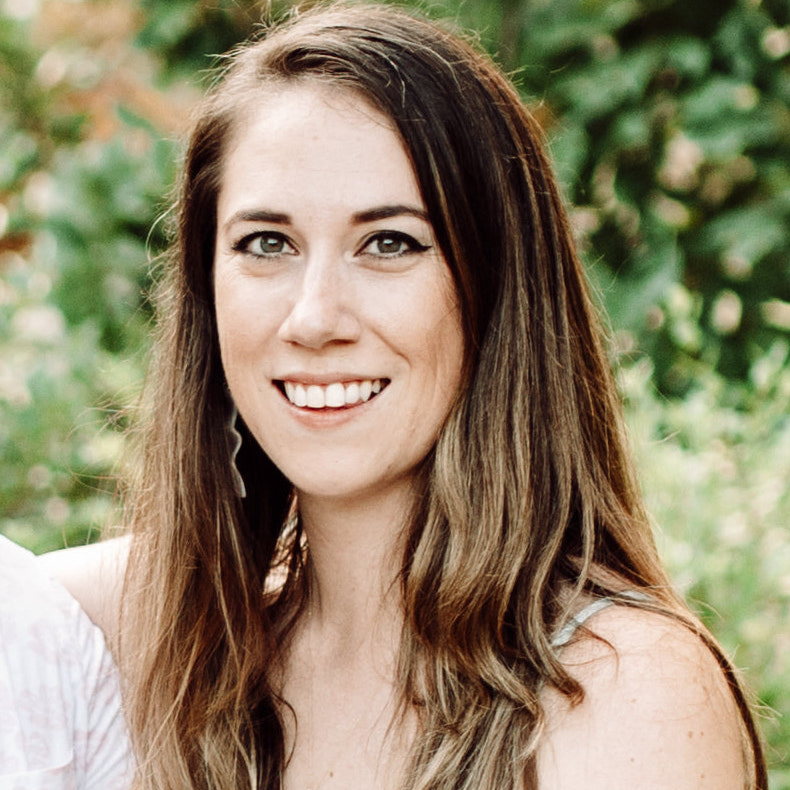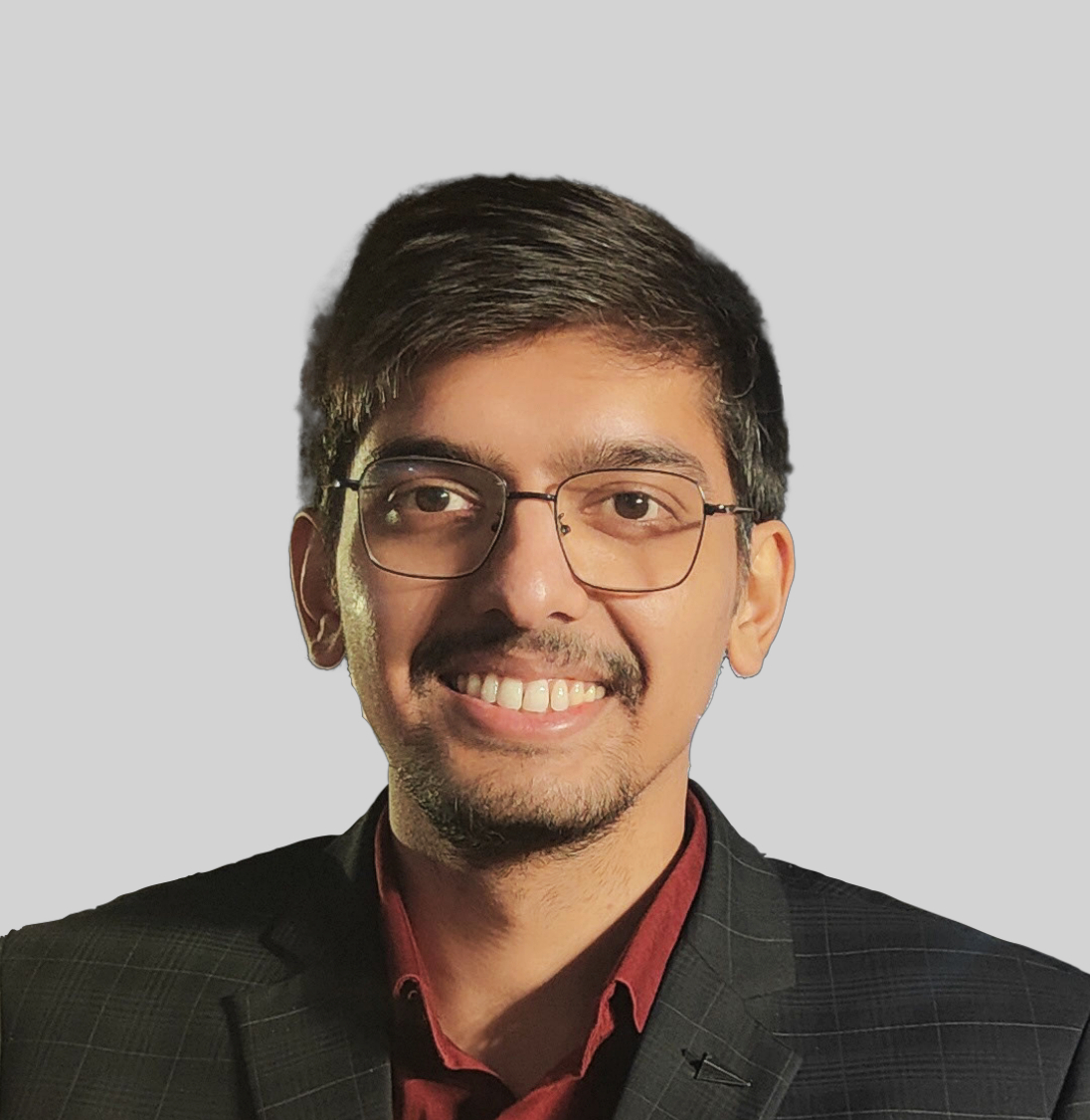How They Made It is an interview series that focuses on indie creators, exploring how they got their start and how their shows and practices have evolved since then. We hope you find inspiration in them for your own creative projects.
If there’s an indie creator who’s hit it big that you think we should feature, send an email to ashley@descript.com.
Deqah Hussein-Wetzel and Vanessa Quirk first started talking about making a podcast together in 2020. Vanessa was an experienced podcaster looking to make more of a social impact with her work; Deqah was a historic preservationist interested in using podcasting as a form of historic preservation—a way of telling and saving stories about the buildings important to marginalized communities.
Together, they created Urban Roots, which inspired Deqah to start the non-profit Urbanist Media. Urban Roots runs as a not-for-profit entity, which makes it unusual in the podcasting world—and super interesting. We talked to Vanessa about why LinkedIn is her most important social network, how her tech setup has changed since the pandemic—including how Descript has been a mainstay—and whether to look for funding or stories first.
This conversation has been edited and condensed for length and clarity.

How did you start in podcasting?
I got into podcasting in 2017, officially. But maybe like many people, I had been harboring the dream of a podcast for many years. Before that I was a more straightforward print-web journalist; my focus was architecture and urbanism.
But I had loved podcasts for a long time. I had a menial job back in the day, packaging remote controls, where the only thing that got me through was listening to podcasts.
As I got into journalism, I always had this idea like, what if? But every time I would bring it up to a website or a magazine, they'd be like, ‘Okay, with what resources are you gonna create this podcast?’ There was a lot of skepticism.
In 2017, I made the shift to an urban tech company. They really understood the value of storytelling, and part of the reason they hired me was because I said in my interview, ‘I really wanna make a podcast.’ So they allowed me to dedicate time and resources towards starting City of the Future, and also hiring really great professionals in the podcasting space. I got to work with Benjamen Walker and Andrew Callaway of The Theory of Everything podcast, which is a Radiotopia show. They taught me so, so much. Over the course of the four years of making City of the Future, I learned a lot about scripting, editing, packaging, marketing, the whole nine yards.
I love that those media companies were like, what resources will you use? Podcasting is famously one of the least resource-intensive creative formats.
The return on investment with podcasting is not clear cut. The virality of podcasting is few and far between. It's not a massive play; it's an engagement play. It's much more about the relationship you have with the host and the subject matter, and it's much less about getting a lot of eyeballs, or earballs, as the case may be. So if you are looking at it as a line item, and you're trying to figure out, Am I gonna invest in this podcast thing? It's like, well, you're gonna have to have a hit on your hands for it to make financial sense. They don't understand the value that comes with podcasting. Sometimes it's hard to make that business case.
What does your hardware setup look like for recording Urban Roots?
I have to give a lot of credit to Andrew Callaway, who shepherded me into the podcasting world. On the technical side, my good friend Connor Lynch, who is the editor of the Urban Roots podcast, also is very helpful. Whenever I have to buy gear, I reach out to one of those two.
I started with a Zoom H6 as my recorder. I had a RODE condenser mic. That was pre-pandemic. With City of the Future, we would invite people into our office. We had a little space; we had a sound booth. At the beginning of the pandemic we actually were literally mailing out USB mics to people. Over time, we realized it was overkill, and the quality for the price was not worth it.
I've changed the way that I record post-pandemic. I just have a Samsung USB mic right now. It’s not fancy, but it's sufficient, and it plugs into my computer. When you're using remote recording software, it's just much simpler than having to set up the Zoom recorder and go through that whole rigamarole.
That said, when I go in the field, I still use the Zoom. I still use the RODE. And then I have another small microphone that I'll use, because I've found that with the RODE, you have to be so in the face of the person that you're interviewing that it can sometimes be distracting or just take them out of the moment.
So then what software do you use to complement the hardware?
It depends on whether we’re doing an interview episode, or one that’s more documentary. Let’s talk about documentary. For remote recordings we use Riverside, generally, though we have thought about transitioning to SquadCast.
Once we’ve recorded, I put things into Dropbox. And then when I open up Descript to make a new composition, I use the file from Dropbox. When you're working collaboratively with a lot of people, you just wanna make sure you all have access to the exact same files.
I am generally the person who takes a first pass. So I will listen to the interview, and I will be highlighting the transcript as I'm listening. My system is that I go green for stuff I really think I'm gonna use, and yellow for stuff I might use.
Then I open a new document called Selects, and I copy everything that I've highlighted into the Selects document. That's when I start to move things around. I group the selects according to themes,
Then I create a Grand Selects doc, where I now have a bunch of different themes, and I start pulling in all of the clips from the different interviews that go together, and that becomes the basis of my script. Usually I have an outline as well, so I'm also eyeing the outline to figure out the order of the grouping.
I start writing in Descript using the writing function, and I also use the AI stock voice functionality. As I'm writing, I'll go segment by segment and listen back to the AI voice. My host track will be the AI voice, and I can get an immediate sense of whether the writing's working, whether the clips are working together. And I'll just keep doing that until I have a complete script of the entire episode.
That's so smart. I write podcast scripts, and I just read out loud to myself. It doesn't quite work the same way. You can't listen enough when you're reading.
The other thing that's really helpful is sometimes, especially if you've been in it too long, you actually don’t know if it's good anymore. You need to go take a walk. And you can export whatever segment you're working on, or that whole episode if you're at that stage, and I can go for a walk and listen on my walk. I find that especially as I'm getting towards the end of the process, and we're getting to final product, that is very important, because that's how your listener's gonna experience it.
So then once you’ve put everything together, what happens next?
Once we have the whole script down, we do the host tracking. It kind of depends on the best workflow, whether I put the host tracking into Descript first, or whether we're gonna export the whole thing and our editor is then gonna put in the host track. I generally find doing it all in Descript first, and giving it to the editor basically done, goes better for us. But there are exceptions to the rule. Then the editor does final tweaks, and they pass it on to the mixer.
I actually learned at a Descript workshop last week—I was just deleting everything when I wasn't using it, and they recommended using that strikethrough tool so that you can see what's been taken out without actually taking it out of the session entirely. And I do think that for collaborative work that makes a lot of sense.
How did you start building an audience for the show?
It’s obviously a struggle. It's not easy to be an independent podcaster and build an audience. When I worked at City of the Future, we had a sizable audience. We had probably 50,000 downloads an episode or so, and the number one way we built that audience was from buying an ad on 99% Invisible. I worked at a tech company; they had resources to put into podcasting. It wasn’t cheap. That was tens of thousands of dollars, even then. So that is not something that I can do.
We are constantly thinking about, what is the value that we're bringing with our podcast, and who is the audience that is most important to us? Because actually we don't need to hit everybody. We just need the people who need to hear this message to hear it. I mean, obviously we would like everybody to listen. But that’s not our priority.
One thing that we've done, which we'd love to do more of, is we've partnered with Cincinnati Public Radio, WVXU. They've actually aired some of our podcast episodes, and that I think is a really cool and interesting way to get our show out to more people, and also to the people for whom the content is actually most relevant.
So yes, we're on Instagram, and our Instagram is really cool, and we have a great assistant helping us named Sophia. But I found that LinkedIn is really, really important, because that's where my network in the built environment is. The people who are making decisions on what projects get built, to what extent wealth is gonna be shared with community members or not, people who are trying to preserve places of significance in their communities—they’re on my LinkedIn.
And then also just figuring out ways to work with our clients to make sure that when we publish, it's going out to their networks. For every episode, we partner with local organizations on the ground, nonprofits or community groups. And we make a concerted effort to share the episode with them, and help them share it too. We'll send them emails and be like, “Here's copy you could use for your social media. Here's a visual you could use on your social media.” And try to activate them to share it.
They actually give us editorial feedback. I know this is not typical journalistic practice, but we do share cuts of our episodes with our interviewees before they go live. We give them an opportunity to correct if we've made a mistake and let us know if we've represented them in a way they're not comfortable with. And so far, it's only ever made the episodes stronger.
We were worried at first that maybe people would say, like, oh, I don't like the sound of my voice or something. But no, it was actually like, “The way you said this, it's not quite accurate, because such and such happened.” People only ever bring up important things. And I think it gives community members more of a sense of ownership.
One of the things we're thinking about is how to make our storytelling actually help the community members we’re highlighting. We don't wanna be extractive. We don't wanna just like, pilot in, take a story, gain from it financially or otherwise, and have no means of giving back to the community that shared the story in the first place. So that's something we're actively thinking about: how to create a more sustainable operating model that would allow us to share resources with the community members that we're highlighting. And that's something we're gonna be thinking about for a long time.
Did you always intend for the podcast to be not for profit?
I give a lot of credit to Dequah. It was her idea to create the nonprofit. She was much more the leader in this space. And I've just been learning over the years working with her.
Originally we were looking at grants for the podcast. So for example, for our Indianapolis episodes, we got a grant from the Indiana Humanities Council. That was helpful for sure. But insufficient, I would say. Grants take a lot of time and energy. One piece of advice that someone gave me was: never apply for a grant you don't know you're going to get. That changed the way we thought about grants, because you can spend so much time and never get a response.
So we've kind of stopped emphasizing grants. We're still open to them, especially if the right one comes along, or we've built relationships with the grantors and it would make sense for us to apply, because we are a known quantity to them. But we’ve actually had more success with other nonprofits.
It is a constant struggle for both me and Dequah to figure out how much time we should be spending fundraising, versus how much time we should be spending actually making the podcasts that we want to make. It's a constant back and forth. Sometimes I’m like, I should just make the podcast and figure out the money later. And then there's the other part of me that's like, you're gonna burn out. You're not gonna be able to do this forever unless there's a sustainable money source coming in.
Having to worry about money and work a day job is very familiar to many indie podcasters. How do you balance your work with making Urban Roots?
It is really tough. I work four days a week at a tech company. I’m very fortunate; it's a fun job. It's flexible. I dedicate Fridays to my independent work, and the weekends. So I do work on the weekends, which is not ideal, obviously. Part of why I'm indexing a lot on the fundraising is because I would love it for Urbanist Media, Urban Roots podcast, to be my main thing.
I'm also just very, very lucky that my husband has health insurance.
What advice do you have for beginning podcasters?
When we started Urban Roots, we were mostly just drawn to stories that intrigued us, and that's how we selected the episodes that would come out, which makes a lot of sense when you're coming from a storyteller perspective. It makes a lot of sense when you're coming from a journalism background. The story comes first.
When you're trying to create a nonprofit and think about the long-term sustainability of your podcast as part of your nonprofit, you have to consider the funding sources first sometimes. And one thing I've learned is that there's no shortage of amazing stories once you start peeling under the surface of places. And so the partners or funders might feel like a constraint to your storytelling, but it can just open the door to allow you to do the storytelling that you want to do. So I would say you can go with funding-first without sacrificing the quality of the stories that you tell.






%20(1).JPG)


























